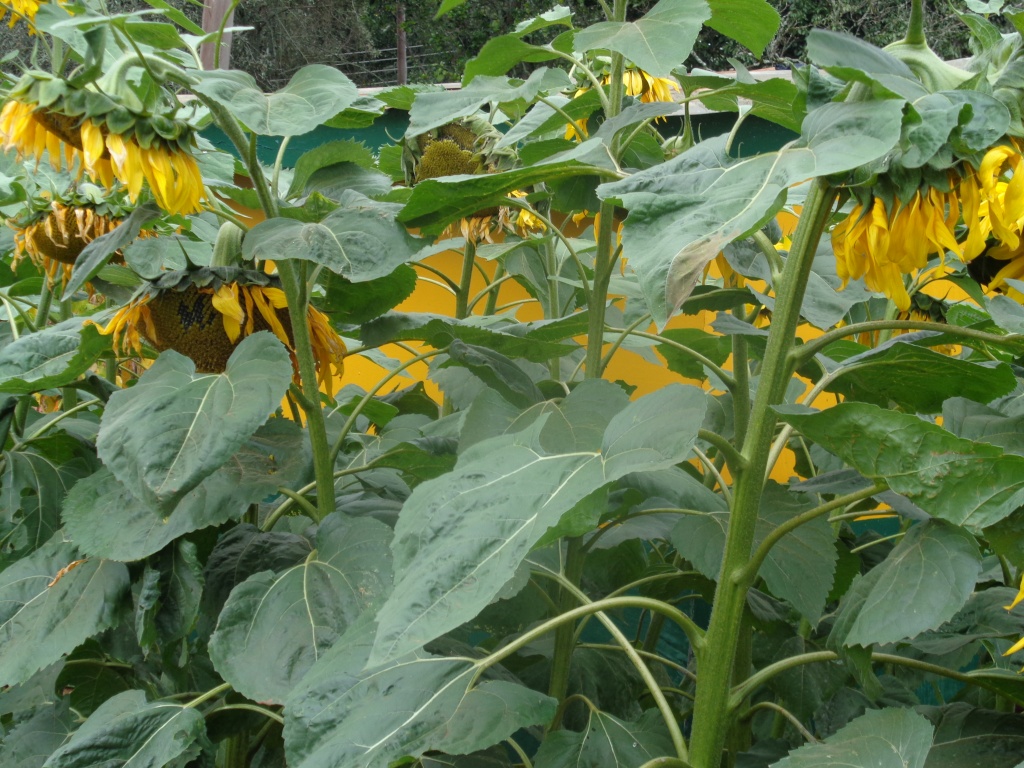Sunflower plants. Sunflower meal is entirely adequate as the sole source of supplemental protein in dairy rations.
Lack of assurance of quality but expensive feeds from markets is prompting farmers into marking their own feeds for their livestock especially dairy production. This to them not only cuts the cost of buying commercial feeds but also to ensure that the correct ingredients are available in the feeds. All farmers need is the raw materials and the specifications on how to mix the feeds to meet the balanced diet needed.
Nowadays millers have devised ways of constituting poor quality feeds which are then sold to unsuspecting farmers. Sunflower for example is a meal of major protein sources in livestock feed, especially dairy cattle, chickens and even pigs and rabbits.
Sunflower contains high protein, fibre and oil content. It has a protein content of between 29- 30% and a crude fibre content of 27-31% and lignin (9-12%) and lysine (3.5%). Another good characteristic of sunflower is that it does not have any ingredients that affect nutrition in livestock, although its high fibre and lignin (the hard, woody part of the sunflower plant) tend to affect its digestibility.
READ ALSO: Sunflower boosts milk yields and income amid feed shortage
READ ALSO: Ex-Mukurweini sweet potato variety is good for food and fodder
READ ALSO: Fodder sorghum doubles milk
According to Nyandarua KALRO field officer Benson Muturi, sunflower is also a good source of calcium, phosphorus and vitamin B.
“The quality of sunflower fed to dairy cattle mostly depends on the way it has been processed. For example sunflower that is milled without removing the outer cover (also called husk or hull) has high fibre of between 27-31% and vitamin B but low protein content of about 23% but in highly processed sunflower where the husks are completely extracted, protein content can be as high as 40%,” said Muturi adding that dairy cows produce more milk when fed on sunflower meal that is partially or fully decorticated.
Sunflower seed cake is a rich source of protein and can be used to formulate livestock feeds at farm level thereby reducing dependency on commercial feeds. The cake can be used as a protein supplement in dairy cattle rations or chicken feed according to Kenya Agricultural & Livestock Research Organization.
Three and a half kilos of sunflower seed when milled can produce one litre of oil and 2.5 kg of seed cake. Farmers can mix 18 kg of sunflower cake with 100 kg of maize germ to make dairy meal which can be fed to the dairy cow during milking. For low producers of milk 2kg of the mixture is recommended and 4kg for high producers.
